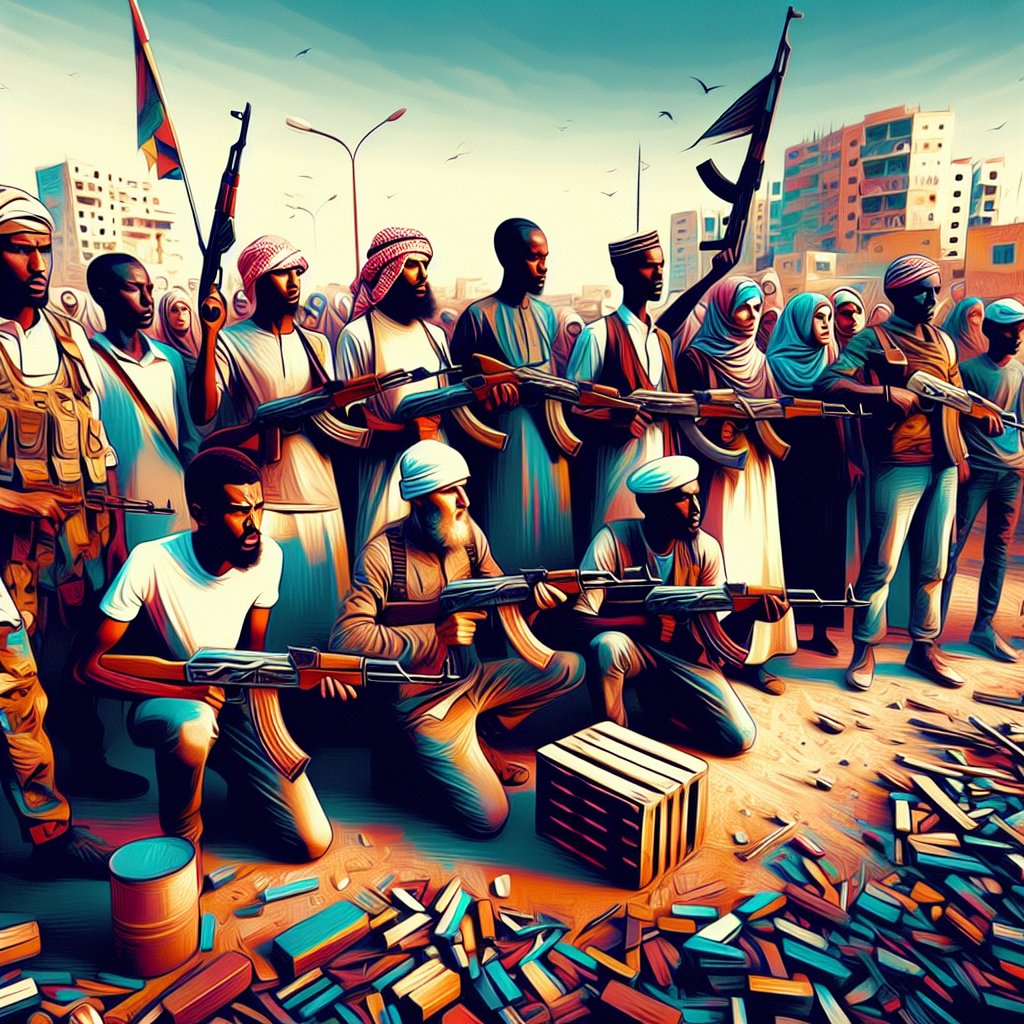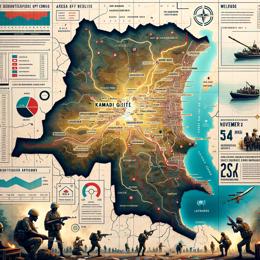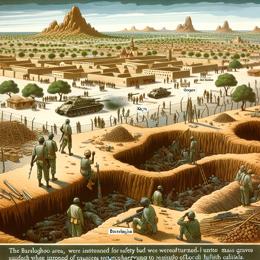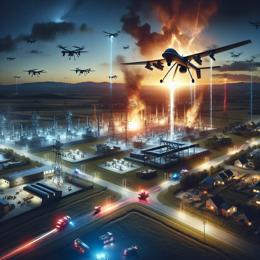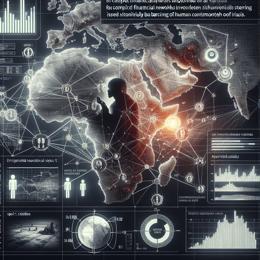Content created by AI
Escalating Violence in Sudan: Civilians Arm Themselves Amid Intensifying Conflict
The River Nile State of Sudan has become a hotbed for civilian mobilization against the paramilitary Rapid Support Forces (RSF), leading to a disturbing trend of untrained young men enlisting as makeshift soldiers. Amid a backdrop where the Sudanese Armed Forces (SAF) appear to be faltering, self-defense has prompted a surge in recruitment across cities, fueled by fear of RSF attacks and ethnic enmities.
Zakariya Issa's story is all too common. Like many other young men, his training was cut short, and he quickly found himself in the line of fire. Tragically, within weeks, he witnessed the loss of friends—his "brothers"—who were among the numerous casualties in confrontations with the RSF, a formidable force seemingly more robust than the national army.
The sense of urgency escalated when the RSF captured Wad Madani, Sudan's second-largest city, and a strategically critical location known for sheltering internally displaced persons. The fall of Wad Madani sent shockwaves across the region, spurring recruitment across the River Nile State, a region that's been historical progenitors of the nation's political and military elite. Presently, figures linked to Sudan's political Islamic movement and army officers are stirring young men from this region to counter the RSF advance.
Indeed, the motivation for many recruits seems to be deeply rooted in the desire to protect their communities from potential RSF-led violence, including looting and sexual assaults. However, some observers view the RSF as invaders motivated by control and dominance. An ominous undercurrent to this mobilization is the exploitation of ethnic tensions to bolster numbers. It's alleged that Arab nomadic fighters primarily compose the RSF, hailing from the historically marginalized province of Darfur.
Eyewitness accounts and social media inputs indicate that children and teenagers appear to be recklessly drafted into the conflict, a disconcerting development that denotes desperation. While some go forth to frontlines like Wad Madani, others remain to defend their hometowns, in anticipation of possible RSF assaults. Disturbing social media posts evidence the outcome of such dreadful circumstances, wherein young combatants face brutal treatment at the hands of the RSF.
In tandem with the recruitment of civilians into combat roles, the climate of suspicion has incited acts of violence rooted in ethnic stereotyping. New arrivals from Darfur, once fleeing violence and looking for sanctuary and stability in the River Nile State, now face accusations and reprisals premised on their ethnic and tribal associations—a cycle of violence begetting violence.
The situation is stark and unfolding dangerously, as evidenced not just by military confrontations but also by the mistreatment of civilians. The indiscriminate nature of the conflict is exacerbating the humanitarian crisis, driving vast populations from their homes and escalating hunger in the region. Moreover, reported incidents of RSF abuses, including looting and sexual violence, have heightened fears and calls for immediate action.
As the urgency for armed defense intensifies among the civilian population, some activists are undeterred in their quest for non-violent solutions, advocating for restraint and an end to the war. Talks between the army's top chief and the RSF leader offer a glimmer of hope—though, until tangible peace materializes, the populace remains on edge. Doubtless, many like al-Sadig are clear in their resolve to protect their loved ones, even if it means taking up arms themselves, signaling a somber readiness for escalation should it become necessary.
